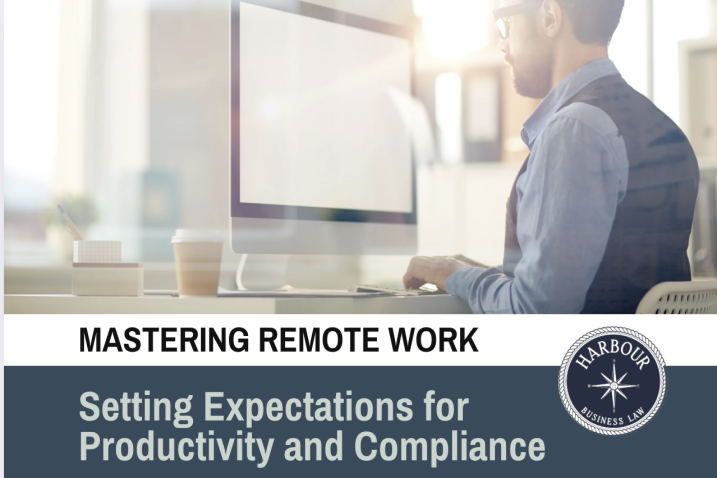
Remote work has reshaped the way we approach our professional lives. With benefits like increased flexibility, reduced commuting, and access to a global talent pool, it’s no wonder more organizations are embracing remote or hybrid setups. However, with these advantages come challenges—especially when it comes to defining boundaries, maintaining productivity, and ensuring legal compliance.
The Challenge: Blurred Lines Between Work and Home
One of the biggest struggles of remote work is the fading line between professional and personal life. Without a structured office environment, employees may feel pressure to be available around the clock, leading to burnout and decreased productivity. Additionally, remote work raises compliance concerns, such as tracking work hours, ensuring fair compensation, and protecting sensitive company data.
The Solution: Clear Expectations & Communication
To overcome these challenges, organizations must set transparent guidelines for remote work. Establishing clear expectations creates structure, reduces confusion, and fosters an environment where employees can thrive while staying compliant with company policies and legal regulations.
Strategies for Success: How to Set Clear Expectations
Fostering Employee Well-Being & Engagement
A successful remote work culture goes beyond policies—it prioritizes people. Encouraging open communication, offering mental health resources, and creating virtual team-building opportunities can boost morale and job satisfaction. When employees feel supported, they perform better and stay engaged.
Remote work isn’t just about flexibility—it’s about creating a sustainable, structured environment where employees can be productive and companies can remain compliant. By proactively setting expectations and supporting employees, organizations can unlock the full potential of remote work while avoiding common pitfalls.
_____________________________________________________
Don’t have a business attorney? Get in touch with our team by emailing Info@harbourbusinesslaw.com.
_____________________________________________________
This Blog was written by Founding Attorney, Katelyn Dougherty.
DISCLAIMER: This blog is for educational purposes only and does not offer nor substitute legal advice. This blog does not establish an attorney-client relationship and is not for advertising or solicitation purposes. Any of the content contained herein shall not be used to make any decision without first consulting an attorney. The hiring of an attorney is an important decision not to be based on advertisements or blogs. Harbour Business Law expressly disclaims any and all liability in regard to any actions, or lack thereof, based on any contents of this blog.